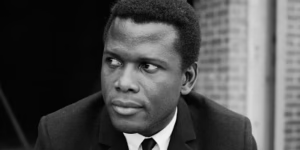Introduction
The 1980s were a transformative time for the music industry, with the rise of new wave and its influential artists leaving an indelible mark on the genre. New wave, characterized by its blend of punk’s rebellious spirit, art rock’s experimentalism, and pop’s catchy hooks, produced some of the most iconic bands of the era. Among these, The Cure stands out as a pioneering force that continues to shape modern music today.
The Birth of New Wave
New wave emerged in the late 1970s as a response to the commercialization of punk rock. Bands like The Clash and The Sex Pistols had already gained mainstream attention, and the scene was ripe for experimentation and innovation. New wave drew inspiration from post-punk, reggae, and electronic music, combining these influences with punk’s energy and rebelliousness.
The Cure’s Early Years
Formed in 1976 in Crawley, England, The Cure was one of the key bands that defined the new wave movement. Led by the enigmatic and introspective Robert Smith, the band’s early sound was characterized by its dark, gothic atmosphere and Smith’s distinctive vocals. Debut album “Three Imaginary Boys” (1979) and its follow-up “Seventeen Seconds” (1980) showcased the band’s ability to craft catchy, atmospheric songs that explored themes of love, loss, and existential crisis.
The Cure’s Influence on Modern Music
The Cure’s influence on modern music is vast and far-reaching. Their experimental approach to songwriting and production paved the way for future generations of artists to push the boundaries of their respective genres. Here are a few examples:
*
Alternative Rock
The Cure’s innovative blend of dark, atmospheric soundscapes and catchy hooks influenced the development of alternative rock in the 1990s. Bands like Smashing Pumpkins, Foo Fighters, and Radiohead drew inspiration from The Cure’s sonic experimentation and lyrical introspection.
*
Goth Rock and Industrial Music
The Cure’s early gothic sound and Robert Smith’s distinctive visual style (including his iconic red hair and heavy eyeliner) inspired a generation of goth rock and industrial musicians. Bands like The Sisters of Mercy, Bauhaus, and Ministry were heavily influenced by The Cure’s dark, atmospheric sound.
*
The Cure’s incorporation of synthesizers and electronic drum machines in their music influenced the development of electronic and dance music. Artists like Depeche Mode, The Chemical Brothers, and Moby have cited The Cure as an inspiration, and their music often reflects The Cure’s atmospheric, pulsing soundscapes.
Legacy and Impact
The Cure’s influence extends far beyond their own music. They have been cited as an inspiration by countless bands and artists across multiple genres. Their experimental approach to songwriting and production has inspired a generation of musicians to push the boundaries of their own music.
In conclusion, The Cure’s impact on modern music cannot be overstated. Their innovative blend of punk’s energy, art rock’s experimentation, and pop’s catchiness helped shape the new wave movement and influenced a generation of musicians. As the music world continues to evolve, The Cure’s legacy serves as a testament to the power of creative experimentation and innovation.
FAQs
Q: What is new wave music?
A: New wave is a genre of music that emerged in the late 1970s, characterized by its blend of punk’s energy, art rock’s experimentation, and pop’s catchy hooks.
Q: Who are some notable new wave bands?
A: Notable new wave bands include The Cure, Depeche Mode, The Police, Blondie, and The Pretenders.
Q: What is The Cure’s most influential album?
A: The Cure’s most influential album is often debated among fans, but “Disintegration” (1989) is widely considered a landmark album that showcased the band’s ability to craft atmospheric, introspective songs.
Q: Is The Cure still active today?
A: Yes, The Cure is still active today, with Robert Smith remaining the band’s primary songwriter and lead vocalist. They continue to tour and release new music, with their latest album “Wish” (2019) receiving critical acclaim.
Q: How has The Cure’s music influenced contemporary music?
A: The Cure’s music has influenced a wide range of contemporary genres, including alternative rock, goth rock, industrial music, and electronic dance music. Many artists have cited The Cure as an inspiration, and their music continues to shape the sound of modern music.






